Centrifugal Pumps Manufacturers and Supplier in India
Looking for top-quality centrifugal pumps? Discover top-quality centrifugal pumps manufactured to meet your industrial and commercial needs. As trusted centrifugal pump suppliers in India, we provide a wide range of innovative pumping solutions to enhance your operations.
Centrifugal pumps are the workhorses of various industries, facilitating fluid transfer with efficiency and precision. Whether you’re in manufacturing, agriculture, or any sector that relies on fluid handling, finding reputable centrifugal pumps suppliers and distributors is crucial. In this guide, we will navigate the world of centrifugal pumps, exploring the top suppliers and distributors, their offerings, and key considerations for making the right choice.
Horizontal Centrifugal Pump
Vertical Centrifugal Pump
Axial Flow Centrifugal Pump
Mixed Flow Centrifugal Pump
Single-Stage Centrifugal Pump
Multi-Stage Centrifugal Pump
Horizontal Centrifugal Pump
Horizontal Centrifugal Pump
Horizontal centrifugal pumps are the most common type of centrifugal pump and are characterized by their horizontal orientation, with the pump shaft typically parallel to the ground. They are widely used for various industrial, commercial, and municipal applications.
Working Principle:
1. The impeller of a horizontal centrifugal pump is mounted on a shaft that is horizontally oriented.
2. When the impeller rotates, it generates centrifugal force, which propels the fluid outward from the center of the impeller.
3. The fluid is then directed to exit the pump casing horizontally through an outlet.
Specifications:
| Flow Rate: | Varied flow rates depending on the design and size, typically ranging from a few gallons per minute (LPM) to thousands of LPM. |
| Head (Pressure): | Suitable for a wide range of pressure requirements, from low to high head applications. |
| Common Applications: | Water supply, heating and cooling systems, chemical processing, and various industrial processes. |
Vertical Centrifugal Pump
Vertical Centrifugal Pump
Vertical centrifugal pumps are designed with a vertical orientation, where the pump shaft extends vertically from the base to the motor above or below the liquid level. These pumps are often used in applications where space constraints or specific installation requirements necessitate a vertical configuration.
Working Principle:
1. In a vertical centrifugal pump, the impeller is mounted on a vertical shaft.
2. As the impeller rotates, it generates centrifugal force, which pushes the fluid outward from the impeller.
3. The fluid then travels vertically either upward or downward through the pump and is discharged at the appropriate level.
Specifications:
| Flow Rate: . | Variable flow rates, similar to horizontal pumps, ranging from a few LPM to thousands of LPM |
| Head (Pressure): | Suitable for a wide range of head requirements, from low to high-pressure applications. |
| Common Applications: |
Sump and sewage pumping, deep-well pumping, industrial wastewater treatment, and other applications where a vertical configuration is advantageous.
|
| Flow Rate: . | Variable flow rates, similar to horizontal pumps, ranging from a few LPM to thousands of LPM |
| Head (Pressure): | Suitable for a wide range of head requirements, from low to high-pressure applications. |
| Common Applications: |
Sump and sewage pumping, deep-well pumping, industrial wastewater treatment, and other applications where a vertical configuration is advantageous.
|
Single-Stage Centrifugal Pump
Single-Stage Centrifugal Pump
A single-stage centrifugal pump is the simplest form of centrifugal pump, featuring a single impeller and one casing. It is primarily used for low-pressure applications and is suitable for transferring clean fluids without high head requirements.
Working Principle:
When in operation, the impeller rotates, creating a centrifugal force that propels the fluid outward. This results in a low-pressure region at the center, causing fluid to be drawn into the pump through the inlet. The accelerated fluid is then discharged through the outlet.
Specifications:
| Flow Rate: | Typically up to 2,000 gallons per minute (LPM). |
| Head (Pressure): | Generally low head applications, typically up to 200 feet. |
| Common Applications: | Water supply, irrigation, drainage, and low-pressure fluid transfer. |
Multi-Stage Centrifugal Pump:
Multi-Stage Centrifugal Pump:
Multi-stage centrifugal pumps have multiple impellers stacked in series within a single casing. This design allows for higher pressure generation, making them suitable for applications requiring substantial heads.
Working Principle:
Similar to single-stage pumps, each impeller generates centrifugal force. However, in a multi-stage pump, the fluid passes through multiple impellers in sequence, with each stage increasing the pressure.
Specifications:
| Flow Rate: | Up to 2,000 LPM. |
| Head (Pressure): | High-pressure applications, commonly exceeding 1,000 feet. |
| Common Applications: | Boiler feedwater, high-pressure water supply, and process industries requiring elevated pressure. |
Axial Flow Centrifugal Pump:
Axial Flow Centrifugal Pump:
Axial flow centrifugal pumps are designed to move large volumes of fluid with relatively low head or pressure requirements. They are characterized by a straight-through flow path, where the fluid flows parallel to the pump shaft. These pumps are ideal for applications that demand high flow rates and minimal pressure increase.
Working Principle:
1. The impeller of an axial flow pump consists of curved blades that resemble an aircraft propeller.
2. When the impeller rotates, it draws fluid in through the inlet and accelerates it in the same axial direction as the pump shaft.
3. The kinetic energy imparted to the fluid by the impeller’s rotation results in the fluid being expelled at high velocity through the outlet.
Specifications:
| Flow Rate: | Very high flow rates, typically in the range of thousands to hundreds of thousands of gallons per minute (LPM). |
| Head (Pressure): | Low to moderate head applications, usually less than 50 feet. |
| Common Applications: | Flood control, irrigation, drainage, cooling water circulation, and wastewater treatment in large-scale industrial and agricultural settings. |
Mixed Flow Centrifugal Pump
Mixed Flow Centrifugal Pump:
Mixed-flow centrifugal pumps combine features of both axial flow and radial flow (traditional centrifugal) pumps. They are designed to handle moderate to high flow rates with moderate to high head requirements. The flow path in a mixed flow pump includes both axial and radial components.
Working Principle:
1. The mixed flow pump features an impeller with blades that are curved in a manner between those of axial and radial flow impellers.
2. As the impeller rotates, it draws fluid in through the inlet.
3. The combination of axial and radial flow within the impeller imparts kinetic energy to the fluid, allowing it to exit the pump at an angle between axial and radial directions.
Specifications:
| Flow Rate: | Moderate to high flow rates, typically ranging from hundreds to thousands of LPM. |
| Head (Pressure): | Moderate to high head applications, often between 50 to 1,000 feet. |
| Common Applications: | Agricultural irrigation, stormwater management, wastewater treatment, and industrial processes where a balance of flow and pressure is required. |
Specialities of Centrifugal Pumps:
- Modular construction for easy customization
- High interchangeability for versatile applications
- Fast delivery to meet urgent needs
- Versatile shaft sealing options, including gland packing and mechanical seal
- Process type design minimizes downtime
- Back pull-out design for easy inspection and maintenance
- Closed impeller ensures long-term high efficiency
- 3-bearing design for continuous, productive operation
- Larger shaft and bearing size for a sturdy design.
Benefits and Features of Centrifugal Pumps:
Centrifugal pumps offer several benefits and features that make them indispensable in various industries:
Benefits:
1. Efficiency: Centrifugal pumps are known for their high efficiency in fluid transport, reducing energy consumption and operational costs.
2. Versatility: They can handle a wide range of fluids, from water to corrosive chemicals, making them suitable for diverse applications.
3. Low Maintenance: These pumps have fewer moving parts, resulting in easier maintenance and reduced downtime.
4. Consistent Flow: Centrifugal pumps provide a steady flow rate, making them ideal for processes that require uniform fluid delivery.
5. Self-Priming: Some centrifugal pumps are self-priming, meaning they can start pumping without needing to be manually filled with liquid.
Features:
1. Impeller: The rotating impeller is the core component that imparts kinetic energy to the fluid.
2. Casing: The casing encloses the impeller and guides the fluid’s flow path.
3. Suction and Discharge Ports: These ports facilitate the entry and exit of the liquid.
4. Shaft and Bearings: The shaft connects the impeller to the motor, while bearings provide support and reduce friction.
5. Types: Centrifugal pumps come in various types, including single-stage, multi-stage, end-suction, and submersible, each designed for specific applications.
FAQ
What is a centrifugal pump, and how does it work?
A centrifugal pump is a mechanical device designed to transfer fluids by utilizing centrifugal force. It operates by rotating an impeller, which creates a low-pressure area at the center and propels fluid outward through the pump casing, ultimately transferring it from the inlet to the outlet.
What are the key components of a centrifugal pump?
Centrifugal pumps consist of essential components, including an impeller, casing, inlet, outlet, and a motor or drive mechanism. The impeller is the rotating element responsible for fluid movement, while the casing contains and guides the flow.
What are the primary applications for centrifugal pumps?
Centrifugal pumps are widely used in various industries for tasks such as water supply, irrigation, sewage handling, industrial processes, HVAC systems, and more. Their versatility makes them suitable for both low and high-pressure fluid transfer.
What are the advantages of centrifugal pumps over other pump types?
Centrifugal pumps offer advantages such as high efficiency, simplicity, reliability, and the ability to handle a wide range of fluids and flow rates. They are often cost-effective and require minimal maintenance.
What is cavitation, and how can it be prevented in centrifugal pumps?
Cavitation occurs when low pressure in the pump causes the formation of vapor bubbles in the fluid, leading to damage and reduced performance. To prevent cavitation, maintain adequate inlet pressure, and ensure the pump operates within its design parameters.
What maintenance practices are essential for centrifugal pumps?
Regular maintenance includes inspecting and cleaning the pump, checking for leaks, lubricating bearings, aligning the motor, and monitoring vibration levels. Follow the manufacturer’s recommendations for maintenance intervals.
How can I improve the efficiency of a centrifugal pump system?
Efficiency improvements can be achieved by optimizing the system design, selecting the right pump size, maintaining smooth pipe fittings, minimizing friction losses, and using variable frequency drives (VFDs) for speed control.
What are the common issues that can affect centrifugal pump perf
Common issues include cavitation, wear and tear on impellers and casings, seal leakage, motor issues, and improper system design. Regular monitoring and maintenance can help identify and address these problems.
What safety precautions should be followed when working with centrifugal pumps?
Ensure electrical safety when dealing with pumps powered by electricity. Follow lockout-tagout procedures when performing maintenance. Wear appropriate personal protective equipment (PPE) and be cautious when handling chemicals or hazardous fluids.
Can centrifugal pumps handle abrasive or corrosive fluids?
Yes, but pump materials and construction must be carefully selected to match the fluid properties. Specialized materials or coatings can be used to resist corrosion, and wear-resistant materials may be employed for abrasive fluids.
Products
Showing 1–12 of 25 results
-

Havells Pumps CMJ20 pump
-
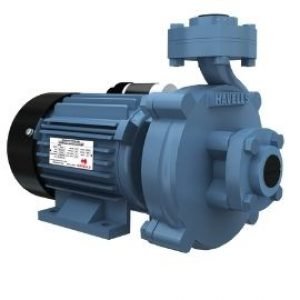
Havells Pumps CMJ20 Pumps
-
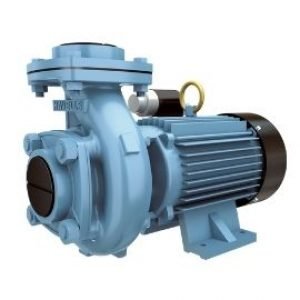
Havells Pumps CMV15L
-

Havells Pumps CMV15
-

Havells Pumps CMQ10 Pump
-

Havells Pumps CMM10 Pump
-
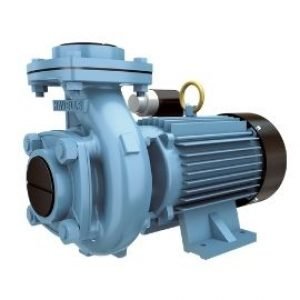
Havells Pumps CMP05E Pumps
-

Havells Pumps CMP05 Pumps
-
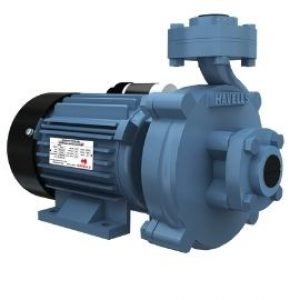
Havells Pumps CM05 Pump
-

Havells Pumps CMM05 pumps
-

CRI Pumps Surface Pumps
-
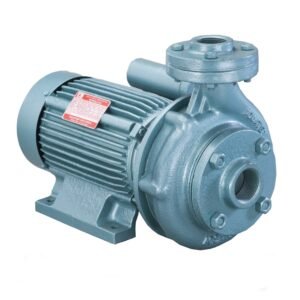
Aquatex Pumps Single Phase Monoblock Pumps (ACS)






